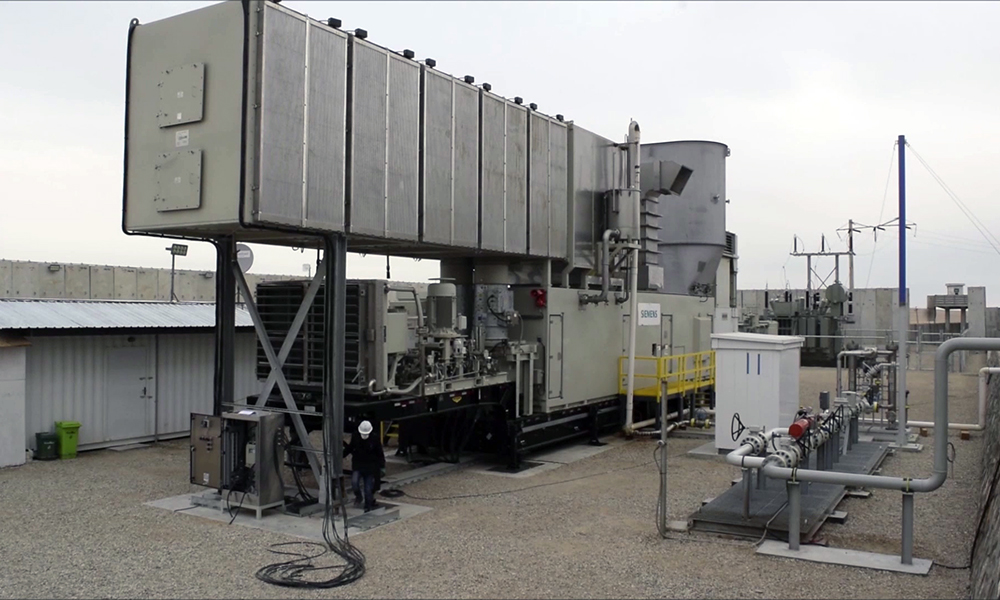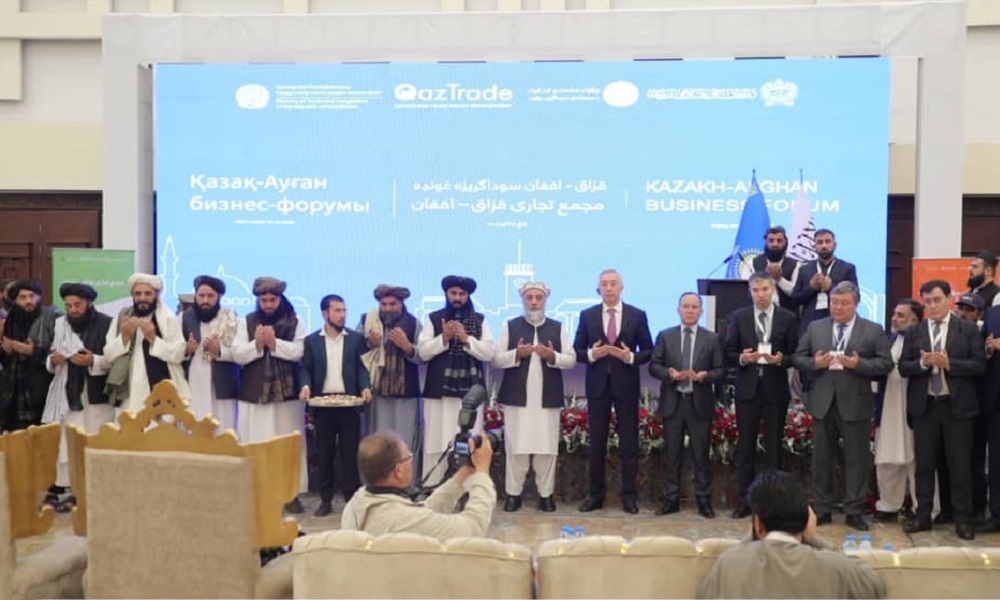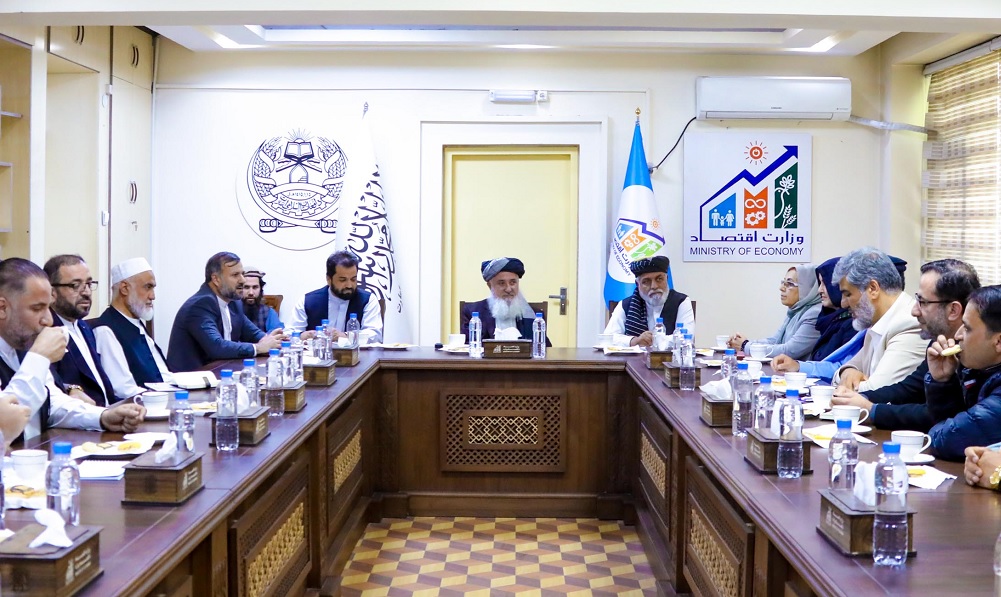Business
Two new gas wells to be drilled in northern Afghanistan this year

The Ministry of Mines and Petroleum spokesman said on Tuesday that two new gas wells will be drilled in northern Jawzjan province this year and gas processing units will be installed alongside the wells in order to purify the gas on site.
The ministry’s spokesman Hamayoun Afghan said a gas pipeline of over 90 kms long, between Jawzjan and Balkh, will be completed and put into operation this year. “This year, we will try to complete the gas pipeline between Jawzjan and Balkh, and we will continue to dig new wells in the Yatem Taq area, and we will try to increase our production in order to increase our revenue,” he said.
He said currently 600 thousand cubic meters of gas is extracted and processed in Jawzjan province daily, but plans are in place to increase this to two million cubic meters per day.
“We are trying to buy new equipment to have a processing capacity of 2.5 million cubic meters of gas per day, and we are fully prepared to launch this project,” Afghan said.
The ministry did not however give any indication of whether agreements had been signed with private investors to extract the gas.
Khan Jan Alkozai, a member of the Afghanistan Chamber of Commerce and Investment (ACCI) said the country will benefit enormously if more investment is made in this sector.
“I think that there is a high capacity in the area of energy production from gas, and in the area of attracting investment in this area, the facilities should be provided,” said Alkozai.
Currently, there are gas fields in nine areas of Jawzjan province, including in Yatem Taq, Jarqaduk, Jangal Kalan, Khowaja Bolan and other areas.
Energy production is a priority for the Islamic Emirate as the government relies on neighboring countries to supply it with over 50% of its current electricity needs.
In addition to coal-fired energy production plants, the IEA is also encouraging investment in gas to electricity plants. This process in the country is not new, as one trailblazer has been successfully supplying electricity to hundreds of thousands of people for the past few years.
The company is Bayat Power, Afghanistan’s largest, Afghan-owned and operated power production company and it has the region’s most technologically advanced gas fired electric power plant.
Launched in 2019, this commercial operation provides reliable and affordable electric power to hundreds of thousands of people in the country.
Located in Sheberghan, in gas-rich Jawzjan province, Bayat Power has steadfastly aimed to provide essential power for Afghanistan’s economic growth.
Powered by a Siemens SGT-A45 ‘Fast Power’ turbine, the world’s most advanced mobile gas to energy power solution, phase one of Bayat Power-1’s operations generates up to 44 megawatts of power for Afghan homes and businesses.
To date, Bayat Power has delivered over 700 million kilowatts of domestic power to the Afghan grid.
However, Bayat Power hopes to eventually roll out three phases in total that will generate more than 200 megawatts of electricity – enough to serve millions of Afghan residential and commercial clients.
Business
Afghanistan’s growth prospects remain uncertain amid global uncertainty: World Bank report
According to the report, in Afghanistan, despite aid cuts, the economy is estimated to have grown by 2.5 percent in FY24-25, which was slower than the pace of population growth.

Amid increasing uncertainty in the global economy, South Asia’s growth prospects have weakened, with projections downgraded in most countries in the region, including Afghanistan.
Stepping up domestic revenue mobilization could help the region strengthen fragile fiscal positions and increase resilience against future shocks, said the World Bank in its twice-yearly regional outlook – the South Asia Development Update – which was released on Wednesday.
According to the report, in Afghanistan, despite aid cuts, the economy is estimated to have grown by 2.5 percent in FY24-25, which was slower than the pace of population growth.
Growth is forecast to increase only moderately to 2.2 percent in 2025/26, the World Bank report stated.
Coinciding with the release of the South Asia report was the World Bank’s Afghanistan Development Update report which explained the situation in more detail.
Stating that while the country’s economy is gradually recovering, the outlook remains uncertain due to growing fiscal pressures, a widening trade deficit and persistent poverty and food insecurity.
The report stated that these factors continue to strain households and hinder inclusive growth.
However, Afghanistan recorded its second consecutive year of growth in 2024, the World Bank stated, adding that the recovery was largely driven by the agriculture sector.
Manufacturing and services remained subdued due to an unfavorable business environment, persistent export barriers and declining foreign aid.
Modest gains in private consumption and real estate investment contributed to growth, the report stated, adding that rising imports widened the trade deficit, increasing external vulnerabilities.
At the same time, rapid population growth and the return of refugees continue to strain job creation and public service delivery, further deepening the fragility of the economy.
Deflation meanwhile persisted in 2024, with food prices having declined sharply. Non-food inflation remained stable. Persistent deflation continued in 2024,
Poverty, food insecurity, and malnutrition however remained pressing challenges and despite modest wage growth, high unemployment and restrictions on women continue to strain livelihoods, the report stated.
Early this year, 14.8 million people faced food shortages, while acute malnutrition – now affecting 4.7 million women and children – is worsening. The World Bank warned that without urgent action, human capital development will be further undermined.
Fiscal pressures meanwhile remained high as domestic revenue mobilization, though relatively strong, is insufficient to offset the sharp decline in aid.
The report also stated that exports declined in 2024, while imports surged – widening the trade deficit.
The increase in imports however was driven by rising industrial demand and substitution of domestic consumer goods.
The afghani (AFN) currency, which had appreciated significantly in 2023 due to strong foreign inflows stabilized with slight depreciation in 2024 but the banking sector remained fragile.
The World Bank reported that economic growth is expected to slow to 2.2 percent in 2025 amid aid disruptions, before gradually recovering to 2.5 percent in 2026–27.
The organization however warned that while Afghanistan’s youth remain a vital source of resilience and untapped potential, urgent action to expand job opportunities for them is needed.
Business
Afghanistan-Kazakhstan trade soars by 32%, target set at $3 billion, says Azizi

Acting Minister of Industry and Commerce, Nooruddin Azizi, stated at the end of the first day of the Kazakh-Afghan trade exhibition that trade volume between the two countries has increased by 32 percent.
He added that both sides aim to raise bilateral trade to $3 billion.
According to a statement from the Ministry of Industry and Commerce, Azizi welcomed the visit of the Kazakh delegation to Afghanistan and expressed appreciation for Kazakhstan’s humanitarian assistance, support, and collaboration, including in the area of digitalizing Afghan government institutions.
Azizi emphasized the importance of connecting Central Asia to South Asia through Afghanistan and discussed expanding trade agreements, holding exhibitions of products and goods in both countries, establishing trade centers in Kabul and Almaty, and facilitating exports and imports between the two nations.
Kazakh Deputy Prime Minister Serik Zhumangarin also stressed that Afghanistan and Kazakhstan are key strategic partners in the region. He described the holding of the business forum as significant for enhancing economic cooperation, establishing new trade relations, exchanging experiences, and promoting joint initiatives.
Zhumangarin stated: “We believe a stable and prosperous Afghanistan is a key factor for peace and stability in the region and has the potential to become a major logistical hub connecting Central and South Asia.”
The exhibition of Kazakhstani products and goods was held at the invitation of the Ministry of Industry and Commerce, with the participation of 25 Kazakh companies.
Business
Acting Minister of Economy meets with Afghan businessmen abroad

Qari Din Mohammad Haneef, Acting Minister Economy, has met with a number of Afghan businessmen and experts living in Germany, France, Italy, Britain, Canada and the United States.
In a recent meeting, the economic and social situation of the country was discussed.
The Afghan businessmen and experts expressed their satisfaction with the security situation and considered the economic programs of the IEA important in improving the economic situation.
The Acting Minister of Economy, explaining the opportunities and facilities available to attract investment in various sectors, called on all Afghan businessmen living abroad to use these opportunities and invest within the country in order to improve the economic situation and create job opportunities.
-

 Sport5 days ago
Sport5 days agoAfghanistan qualify for U19 Cricket World Cup 2026
-

 World4 days ago
World4 days agoThousands of protesters rally against Trump across US
-

 World5 days ago
World5 days agoIran, US end nuclear talks in Rome, agree to meet next week
-

 Latest News4 days ago
Latest News4 days agoPolio vaccination campaign launched in Afghanistan
-

 International Sports4 days ago
International Sports4 days agoIPL 2025: 14-year-old Vaibhav Suryavanshi becomes youngest IPL player
-

 International Sports2 days ago
International Sports2 days agoIPL 2025: Robo-Dog ‘Champak’ explained
-

 Latest News3 days ago
Latest News3 days agoChina invites various Afghan delegations to attend Shanghai forums
-

 Latest News3 days ago
Latest News3 days agoAriana Afghan Airlines increases flights to China
























